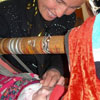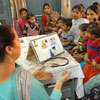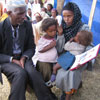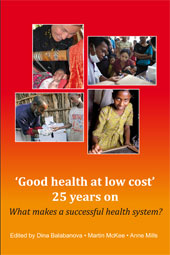Why do some low and middle income countries manage to achieve good health outcomes while others fail? What factors drive improvements in the health system and in access to primary health care? How can we act on the social determinants of health in cash-strapped economies?
These questions are as relevant today as they were in 1985 when the Rockefeller Foundation published what was to become a seminal report – Good health at low cost. The report explored why some low and middle income countries achieved better health outcomes than others, making Good health at low cost essential reading for health systems decision- and policy-makers alike.
This new edition of Good health at low cost 25 years on draws on a series of new case studies from Bangladesh, Ethiopia, Kyrgyzstan, Tamil Nadu and Thailand providing fresh insights into the role of effective institutions, innovation and country ownership in catalysing improvements in health.
New challenges such as increasing urbanisation, a growing private sector and an upsurge in non-communicable diseases suggest that both learning from the past and new thinking are required to strengthen health systems. This edition provides both and is a vital resource for academics, policy-makers and practitioners grappling with how to improve health in low and middle income countries.

![124-69-[Bangladesh]](http://blogs.lshtm.ac.uk/ghlc/files/2011/10/124-69-Bangladesh.jpg)

![1-42-[Bangladesh]](http://blogs.lshtm.ac.uk/ghlc/files/2011/10/1-42-Bangladesh.jpg)

![Front-Cover-[Thailand]](http://blogs.lshtm.ac.uk/ghlc/files/2011/10/Front-Cover-Thailand.jpg)
![Front-Cover-[Girl-Reading]](http://blogs.lshtm.ac.uk/ghlc/files/2011/10/Front-Cover-Girl-Reading.jpg)



![Back-Cover-[Thailand]](http://blogs.lshtm.ac.uk/ghlc/files/2011/10/Back-Cover-Thailand.jpg)
![Back-Cover-[Tamil-Nadu]](http://blogs.lshtm.ac.uk/ghlc/files/2011/10/Back-Cover-Tamil-Nadu.jpg)
![Back-Cover-[Ethiopia]](http://blogs.lshtm.ac.uk/ghlc/files/2011/10/Back-Cover-Ethiopia.jpg)






